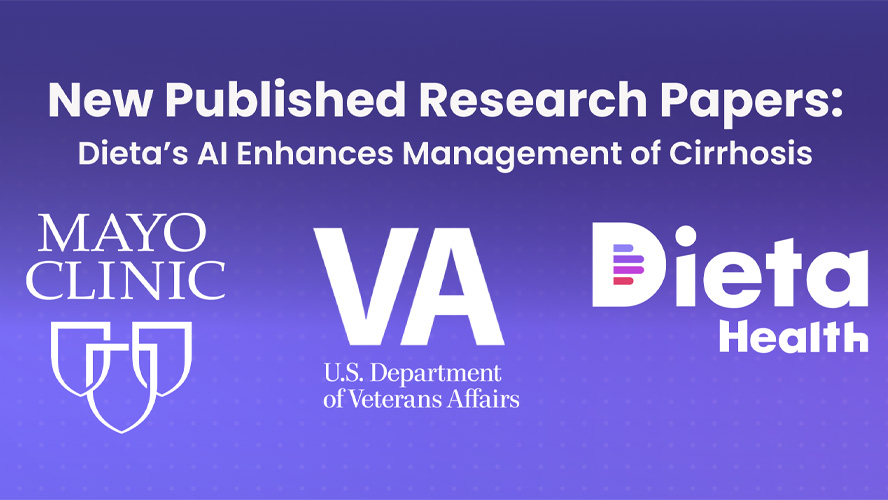Dieta Health has announced two groundbreaking studies conducted in collaboration with Mayo Clinic, Veterans Health Administration (VA), and Virginia Commonwealth University (VCU). These studies, led by Dr. Douglas Simonetto at Mayo Clinic and Dr. Jasmohan Bajaj at VA and VCU, have been published in the American Journal of Gastroenterology. They demonstrate the significant impact of Dieta’s AI technology in managing cirrhosis and preventing hepatic encephalopathy (HE). The AI technology, through proprietary AI stool image classification, provides precise monitoring and management of cirrhosis, offering real-time, actionable insights for both patients and healthcare providers.
Mayo Clinic Study Overview:
Objective: To assess the effectiveness of Dieta’s AI app in assisting cirrhosis patients with lactulose titration.
Participants: 42 subjects.
Findings: Improvement in achieving Bristol Stool Scale (BSS) goals during the intervention phase with the app (74%) compared to the lead-in phase without the app (68%). Increased goal achievement for less compliant subjects and high user satisfaction.
VA & VCU Study Highlights:
Objective: To evaluate the role of the Dieta app in self-management of lactulose therapy among cirrhosis patients.
Participants: 61 subjects (15 controls, 46 patients with cirrhosis), with 46 completing the study.
Findings: Significant increase in correlation between lactulose dose adjustments and AI-BSS over time, indicating effective guidance for accurate lactulose titration.
Key Insights
- Advancement in Cirrhosis Management: The studies highlight the potential of AI technology in transforming the management of cirrhosis, particularly in titrating lactulose treatment effectively.
- Enhanced Patient Empowerment: Dieta’s AI app empowers patients with real-time data, enabling them to manage their condition more effectively and potentially reduce hospital admissions.
- Potential for Broader Clinical Application: The success of these studies suggests that Dieta’s AI technology could be beneficial in various clinical scenarios beyond cirrhosis, including conditions like IBS, Crohn’s Disease, and Ulcerative Colitis.
- Future Research Directions: Encouraged by these findings, there is an eagerness to expand research collaborations and explore the benefits of AI in a wider array of conditions and clinical settings.
Image Source & Credit: Dieta Health



